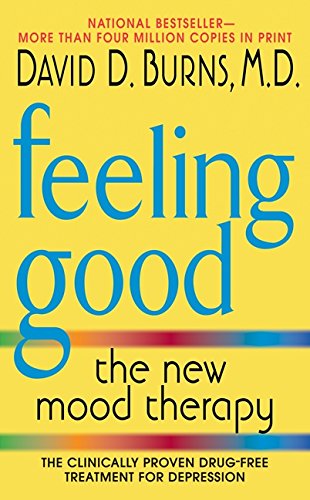
How To Stop Overthinking In 3 Easy Steps
We recommend helpful products in our articles. Read our full disclosure here. The content on this website is not intended to be a substitute for professional advice, diagnosis, or treatment.
Are you constantly overthinking everything in your life?
People, relationships, situations, your actions, mistakes, various events, future, past, existence, money, your looks, your body, your health… I bet you could keep listing more and more things you tend to overthink about.
When I was in my early twenties, I was constantly ruminating about EVERYTHING.
I was living my life in a “fear mode” because I always felt like something bad might happen soon and I have to be prepared for absolutely every possible scenario.
Overthinking is extremely draining and stressful for your whole body. When you’re ruminating on things that you can’t change, the things that have never happened yet, or things that other people do, your body reacts both in a psychological and physical way as well.
Your muscles may feel tense, you may experience brain fog, you may even get unexplained aches because you’re dealing with a ton of negative emotions that are not being released.
But there’s one thing that’s even worse than being tense, tired, or irritated…
Overthinking Is Robbing Your Life
Have you ever been so lost in your thoughts that you miss something other people said, just a moment ago?
Have you ever accidentally put sugar in your fridge, because you were not really thinking about what you’re doing at the moment?
Have you ever felt that time just flew by, even though there was nothing significant you were actually doing?
In all of these situations, you were probably thinking about something else.
You were consumed by your thoughts.
When you are overthinking something, you are not focusing on what is happening right now, this second.
Instead, you are living in your thoughts, in a sort of “projected reality” that you keep creating in your head.
You are going through various scenarios that might have happened in the past or might have never even happened.
And yes, you’re trying to “make sure you know what to do if it DID happen”.
Ultimately, you keep walking in this trance every day, while your real life is passing by… You are trading the only real thing you have – this second, this exact moment that is happening NOW – into something that is happening in your head.
“Are you telling me to stop thinking about the past or future overall?
Should I just forget everything?”
No, of course not.
But I think there’s a better way to deal with something that is making you overthink than just to think about it all the time.
How To Stop Overthinking
If you want to stop overthinking, you should learn to do these three simple steps.
STEP1: Catch Yourself
If you want to learn how to stop overthinking, you need to develop a habit of watching yourself and actually noticing when you are overthinking.
It’s not easy to do, because most of the time it happens almost automatically… But once you’ve successfully caught yourself a few times, it becomes easier.
Now, there’s no real blueprint on how to do it… But you should decide to be more aware of your thoughts every day and actively try to catch those moments when you begin to overthink.
Also, you can set up a notification a few times a day to remind yourself to stay aware of your thoughts.
Once you catch yourself overthinking something, it’s time for the next step.
STEP 2: Analyze Your Thoughts
Since we usually overthink something that is negative, it’s a good idea to check if our thoughts are rational.
I’ve read a ton of books on how to stop overthinking because it was (and sometimes still is) a big part of my life.
What has helped me the most is a few things I’ve learned with CBT (Cognitive Behavioral Therapy).
Cognitive-behavioral specialists discern a few distorted thinking patterns that most people develop in their life.
All of them are irrational, and sometimes even illogical.
It means that they create unhelpful suffering that could be avoided just by looking at your situation from a logical, rational point.
So when you catch yourself overthinking, check if you aren’t “practicing” any of these:
- Black & White thinking: believing that things can only be good or bad, like seeing only black and white colors, without any shades of grey (“This one thing is bad so it means everything is bad”).
- Jumping to Conclusions: assuming to have mind-reading abilities and knowing what someone else is thinking (“He doesn’t like me, I can feel it”) OR making predictions about the future (“This or that will happen” even though you can’t know for sure).
- Personalization: blaming yourself for everything that goes wrong, even when you are only partly responsible or not responsible at all (“My child has bad grades at school.
It must be my fault”).
- Catastrophizing: seeing a situation as terrible, dreadful, or horrible, imagining the worst possible scenario, and believing it will come true (“I am late to pay my electricity bill.
They will make me homeless.”).
- Should & Must Thinking: creating unreasonable demands for yourself or others, like you / other people “must” or “should” do something (“I must go this family meeting”. “He should be more attentive”.).
- Overgeneralization: believing that if a thing, event, or situation happened once, then it is bound to happen again and again (“I tried losing weight and failed.
I’m not meant to be fit.”).
- Labeling: making global statements about yourself or others based on opinions or situations (“I’m unrepairable”, “He’s a bad person” and similar).
- Emotional Reasoning: believing that something is bad because you feel bad. (“I feel awful so it means something awful is going to happen”).
- Magnification & Minimization: magnifying the positive attributes of other people and minimizing your own positive abilities, achievements, or talents (“It doesn’t matter that I have a doctor’s degree, she looks better than me and it makes me worthless.”).
- Mental Filtering: focusing only on the negative events or things in your life, disqualifying all the positive ones (“I can’t be happy for this success because something in my life is still not right”).
Challenge every negative thought and look for any of these distortions.
Remember – life is not only “good” or “bad”.
There’s nothing you “must” do, but there are things that are useful if you did them.
There’s no rule book on how people should behave, and it’s impossible to know the future.
You can’t ever be fully prepared for everything because there are thousands of possible outcomes for every single situation.
STEP 3: Let It All Out
Once you’ve caught and analyzed your thoughts, it’s time to let them go.
The best way to do it is with the help of your journal.
Journaling allows you to fully process those annoying, intrusive thoughts and take at least a part of their load off your head.
Another major benefit of journaling is that doing it allows you to feel your emotions, whatever they are.
Sadness, anger, fear, stress – these negative emotions are unpleasant, but it’s always better to feel them, instead of trying to push them away.
So feel your emotions, write those thoughts down and you will see that there’s no need for you to overthink things again.
Looking at your situation from a side will also help you to find the best solution faster (you will still need to solve your problem, but you won’t feel so panicky about it).
If you want to try journaling that digs a little deeper and helps you in difficult situations, I strongly recommend my printable worry workbook (free!).
I use them myself, which means I really thought them through when I designed them (I was personally interested in them working well).
And, to be honest, they work great every single time.
Best Books That Teach You How To Stop Overthinking
If you want more guidance on how to stop overthinking, I can’t end this article without introducing the most helpful books I’ve read on this topic.
As I like to say, whenever you encounter a problem or limit in your life, go and gather knowledge so you can deal with it quickly and effectively.
This way, you will always be working on removing your limiting beliefs, expanding your knowledge, and becoming resilient.
These are extremely helpful books that have shown me how to stop overthinking and get my generalized anxiety under control.
I 100% recommend them to anyone who struggles with mental health, as these are just life-changing:

Burns" width="310" height="500" />
Feeling Good: The New Mood Therapy
The first book I recommend to anyone who is struggling with anxiety, worry, depression, apathy, lack of motivation, or general irritation.
This book will teach you how to stop overthinking, how to stop catastrophizing, and how to look at your world with new eyes – and with less pain. Get it here

The Power of Now: A Guide to Spiritual Enlightenment
The most important book I have ever read in my life. The biggest impact and the biggest burst of happiness, confidence, and wellness came into my life after reading (or should I say, CONSUMING it because I couldn’t stop) this book.
It’s not an easy read, but it’s something that can turn your thinking upside down and almost lead you to euphoria if you manage to get really PRESENT.
After reading this book, you will feel a lot safer, less needy, less anxious, and insecure with anything you do in your life.
You will understand why people do the things they do, you will forget fear, and you will learn to stop, look around and JUST BE.
This book is the only thing that proved to me that I AM COMPLETE as I AM – any time, any second, no matter what. Get it here
How To Stop Overthinking: The Bottom Line
As you can see, it’s not impossible to stop overthinking.
At the end of the day, thoughts are just thoughts.
Our mind loves to think because thinking is its sole purpose.
But once you notice that this overthinking habit is consuming your life (the one that is happening here and not in your head…), it’s time to do something about it.
I hope you try these tips and learn to stop those intrusive thoughts before they spiral out of control.
Like these thoughts on how to stop overthinking?
Scroll down for more helpful content below.
"We love to research problems, examine studies, analyze solutions, and share with you ideas that make life healthier. You can learn about us and our editorial standards here. Have suggestions or feedback to share? Send us a message!."













Leave a Comment